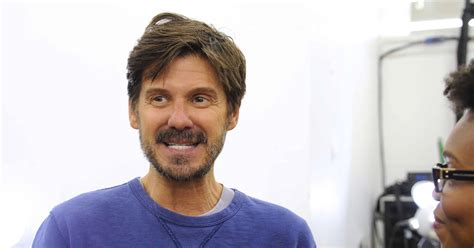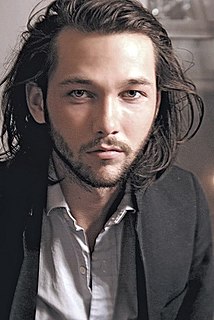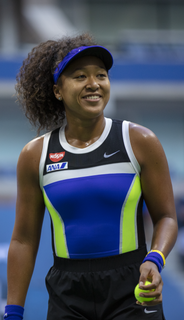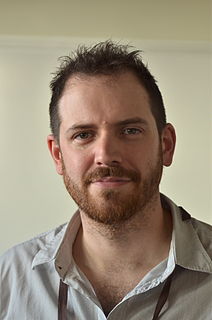A Quote by Guido Palau
I worked in salons, where you do learn the basic sort of thing. But I didn't know anything about the kinds of things I'm doing now. I learned how to put hot-rollers in.
Related Quotes
When you learn to read and write, it opens up opportunities for you to learn so many other things. When you learn to read, you can then read to learn. And it's the same thing with coding. If you learn to code, you can code to learn. Now some of the things you can learn are sort of obvious. You learn more about how computers work.
My mother was always expanding my art skills and getting me to paint different things. You always got to push some. And, I mean, I learned basic things like getting up on time, how to shop - you know, you don't touch things in a store you're not going to buy. These things were taught very young. I don't see today enough of this basic, you know, basic skill teaching.
It's really hard to teach me anything. I can't read music. I never learned how to read music. I read books about things and try to learn - I don't like to learn from anybody. Later on I would, once I'd get the hang of things. Like I ride horses, I'm good at that, Western riding. I learned all about it reading and studying. I'm always learning about horses, I like that.
There are things that directors know about me that people shouldn't know. But everyone's really different. I've worked with women who I've never wanted to tell anything about myself to, and I've worked with guys who have been pouring wells of emotion. So emotional availability is not a gender-specific thing.
Some men and women are inquisitive about everything, they are always asking, if they see any one with anything they ask what is that thing, what is it you are carrying, what are you going to be doing with that thing, why have you that thing, where did you get that thing, how long will you have that thing, there are very many men and women who want to know about anything about everything.
Many have marked the speed with which Muad'Dib learned the necessities of Arrakis. The Bene Gesserit, of course, know the basis of this speed. For the others, we can say that Muad'Dib learned rapidly because his first training was in how to learn. And the first lesson of all was the basic trust that he could learn. It is shocking to find how many people do not believe they can learn, and how many more believe learning to be difficult. Muad'Dib knew that every experience carries its lesson.
I always feel like I learn more from directors that are new, and I also am able to understand how much I really do know about filmmaking when you work with directors that maybe don't have as much experience, so you're able to sort of take the reins. I know how to do these movies, I've done so many of them and have learned from new directors who are usually willing to try new things and are more open to allowing someone like me to kind of come in and just do what I know how to do.
I was about 20 when my mom got sick with cancer and it was bad. It was very scary and at the time I was doing my first screenplay and I was on deadline and was alone with my father in Massachusetts. I said, "Pop, you know, I don't how I'm going to work. I don't know how I can get this done. You know, I got to hand this script in and I can't think about anything but Mom." He said, "Well, you know, now is the time when you're going to learn what it means to compartmentalize." And those words really had an impact on me.
When I worked with General Electric, again this was soon after the Second World War, you know, I was keeping up with new developments and they showed me a milling machine and this thing worked by punch cards - that's where computers were at that time, and everybody was sort of sheepish about how well this thing worked because in those days machinists were treated as though they were great musicians because they were virtuosos on these machines.
Everything about singing, I learned from busking. Everything I learned about songwriting, I learned from busking. Busking, you learn people, you learn about reading people. You learn about reading the atmosphere of the street. If you stand still in any city long enough, you see everyone pass you by. It's almost like you get to know personality types, just by watching people walk past. You get a sense for things.

































